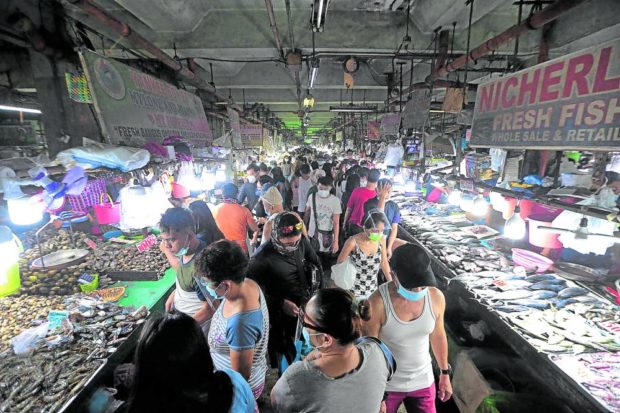PH ‘most vulnerable’ to food, fuel price shocks in Asia-Pacific

The Philippines may benefit from greater regional cooperation in food production and trade amid the lingering Russia-Ukraine conflict, especially as the country is the most vulnerable to volatile prices among 14 markets in the Asia-Pacific region.
According to Moody’s Analytics, food-related price shocks could increase social discontent and trade protectionism, with some countries banning the exports of certain commodities like rice and sugar.
In a report released July 19, Moody’s Analytics noted that the Philippines was the most exposed to inflation of basic necessities, compared with Thailand, India, Vietnam, Malaysia, Indonesia, China, South Korea, Japan, Hong Kong, Taiwan, Singapore, Australia and the United States.
Since February, the conflict between Russia and Ukraine has been disrupting the supply and raising the cost of agricultural products, especially cereals and vegetable oils, as well as fertilizers and other agricultural inputs.
“The Philippines [has] high energy and food weights in [its] consumer price index baskets,” the research firm said.
As monitored by the Philippine Statistics Authority, the food and energy baskets of goods account for a combined 59.13 percent of the consumer price index in the Philippines.
“Net import dependence in key cereals, such as rice and wheat, is also high in the Philippines,” Moody’s Analytics said.
Policy responses to recent food price shocks will have long-term credit implications for sovereigns and some nonfinancial companies, the research firm added.
Moody’s Analytics’ sister firm, credit rating firm Moody’s Investor Services gives the Philippine government an investment-grade rating of “Baa2” with a “stable” outlook.
Social pressures
Considering current risks to food security, the company said food and agricultural subsidies would feature more prominently in government policy amid mounting social pressures.
Citing data from the Organization for Economic Cooperation and Development, Moody’s Analytics noted that the Philippines was giving the highest support or subsidies to agricultural production—estimated as a share of gross farm receipts—among emerging economies in the region. However, it is trailing behind South Korea and Japan.
As for regional cooperation, Moody’s Analytics said rising commodity prices may prompt governments in Asia-Pacific to invest in agricultural supply chains and crop yields to enhance domestic production, particularly in more vulnerable economies.
“More targeted support to smaller farmers through agricultural reforms, such as access to rural financing and value-chain infrastructure, would be positive for agricultural employment, especially in economies with a large agrarian sector, and in enhancing overall food security,” Moody’s Analytics said. INQ
